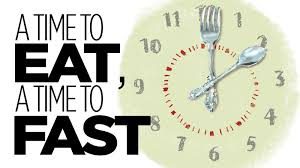One way to estimate the value God places on a facet of the Christian Life is by the number of times He has it Included/Mentioned in the Bible.
First, let’s agree that the number 7 is significant in God’s Kingdom.
Seven days to create the World.
Each Seventh day in the order of the days of the week are a special Memorial of His Work.
Seven days marching around Jericho. (Plus seven times on the seventh day).
How many times we are to forgive (70 x 7).
Seven colors in the rainbow.
I could go on…
Fasting is mentioned 77 times in the Bible. I don’t believe that is a coincidence.
Fasting is a significant practice in the lives of God’s People.
Fasting is almost always combined with prayer, sackcloth, ashes, and weeping.
The sack cloth, ashes, and weeping were culturally significant to the Jews, representing sadness, mourning, a recognition of our mortality.
I think the admonition of Jesus that we should do certain behaviors in private, that making a show of fasting had no special value nor benefit in achieving a better walk with God.
Again, Jesus said the Fast that accomplishes the most is the fast of a contrite spirit.
The idea of fasting has lately begun to include many things besides food.
One can easily find examples that are named “Fasting” but may have nothing to do with food.
Television (or Media) Fast
Dating Fast
Red Meat Fast
But, fasting is the way that the saints of God received a breakthrough to direct them and help them deal with a crisis in their lives. Fasting is a deliberate abstinence from physical gratification—usually going without food for a period of time—to achieve a greater spiritual goal.
In the Bible, fasting is always connected with prayer.
It is a good idea to first discuss your plans to participate in a regimen of fasting with your Doctor. Some medical liabilities do not respond well to a sudden absence of food.
Many schedules have been created to accommodate those who wish to begin a practice of fasting.
You may begin by skipping one meal, perhaps supper. Then expand to skipping two meals.
Fluids should always be continued, water, grape juice – but avoid the acid ones.
A popular schedule is called 5:2 Fasting.
Eat normally for five days; have a restricted intake (500 – 600 calories) for two consecutive days.
Few of the websites or articles that I read have a focus on the spiritual purposes for fasting. Improving my spiritual connection with God is a primary motivation for me.
That said, science has reported that it is possible to re-set your immune system with a 3-day fast.
Caution: Unless you are the one exception in the population, you will experience some emotional downs as you go through your first few fasts. Hangry is a real thing.
One Break that I highly recommend: Digital Fasting! Disconnect. (Warn your friends; they’ll think you’ve been abducted otherwise.)

Also, if you don’t make plans to keep yourself occupied – reading, praying, exercising, gardening, writing – you will likely regret your decision to fast.
Because a fast is never fast.
Decide on a specific focus for reading, study, prayer. Overcome a known area of reluctance to let go and let God. Overcome the taste for a food or drink that you know is questionable.
See the Mission that God has for you.
Work up to the go-without-food goal. Begin by planning small snacks: fresh or dried fruit, matzo crackers.
I am not an expert in this area. I am in discussion with God about what He wants me to do.
And more importantly, what He wants to do in me.
Let me know your experiences with fasting.
Eldon.roberts @ gmail.com
